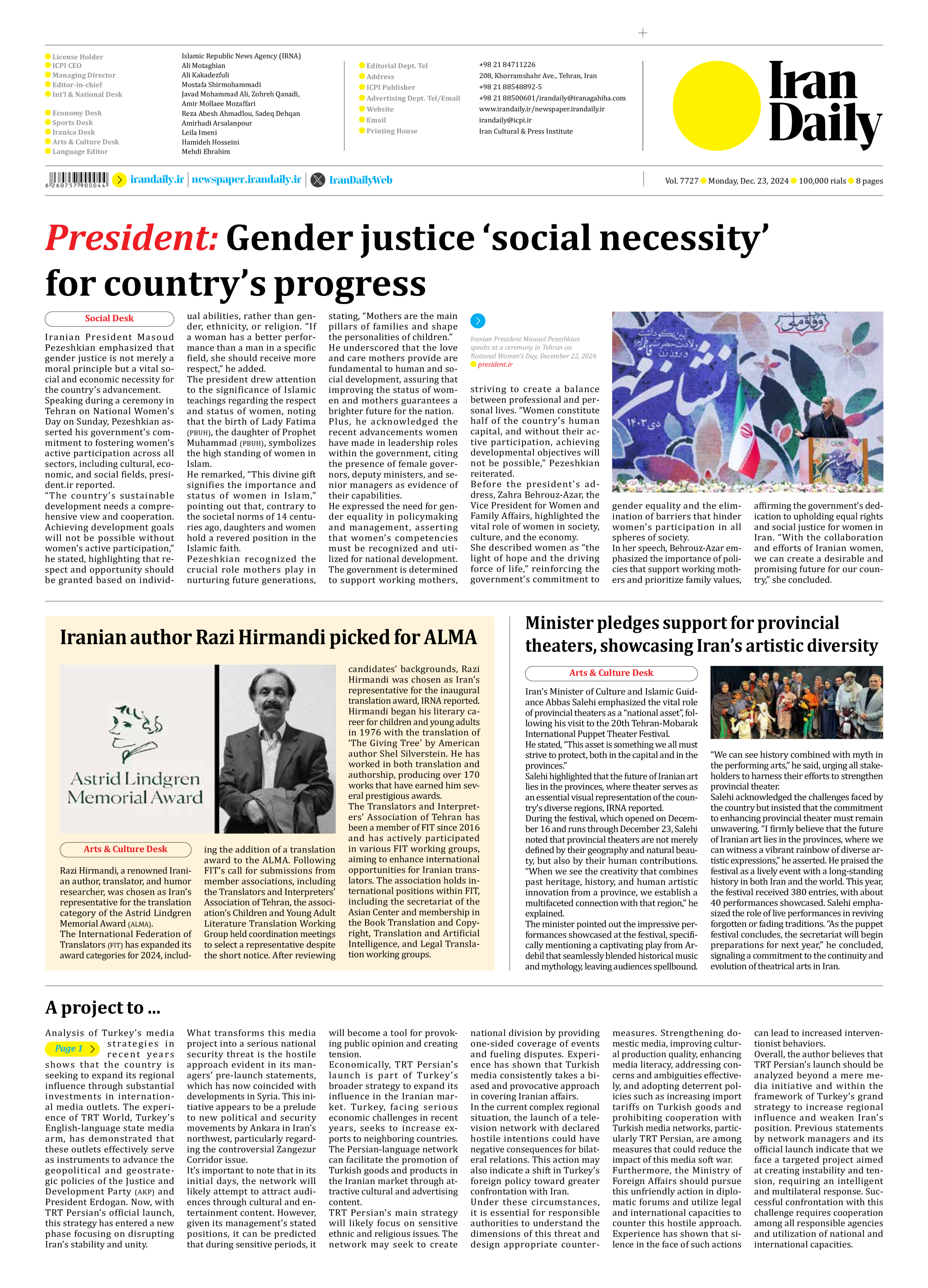
Copy in clipboard...
President: Gender justice ‘social necessity’ for country’s progress
Iranian President Masoud Pezeshkian emphasized that gender justice is not merely a moral principle but a vital social and economic necessity for the country’s advancement.
Speaking during a ceremony in Tehran on National Women’s Day on Sunday, Pezeshkian asserted his government’s commitment to fostering women’s active participation across all sectors, including cultural, economic, and social fields, president.ir reported.
“The country’s sustainable development needs a comprehensive view and cooperation. Achieving development goals will not be possible without women’s active participation,” he stated, highlighting that respect and opportunity should be granted based on individual abilities, rather than gender, ethnicity, or religion. “If a woman has a better performance than a man in a specific field, she should receive more respect,” he added.
The president drew attention to the significance of Islamic teachings regarding the respect and status of women, noting that the birth of Lady Fatima (PBUH), the daughter of Prophet Muhammad (PBUH), symbolizes the high standing of women in Islam.
He remarked, “This divine gift signifies the importance and status of women in Islam,” pointing out that, contrary to the societal norms of 14 centuries ago, daughters and women hold a revered position in the Islamic faith.
Pezeshkian recognized the crucial role mothers play in nurturing future generations, stating, “Mothers are the main pillars of families and shape the personalities of children.”
He underscored that the love and care mothers provide are fundamental to human and social development, assuring that improving the status of women and mothers guarantees a brighter future for the nation.
Plus, he acknowledged the recent advancements women have made in leadership roles within the government, citing the presence of female governors, deputy ministers, and senior managers as evidence of their capabilities.
He expressed the need for gender equality in policymaking and management, asserting that women’s competencies must be recognized and utilized for national development.
The government is determined to support working mothers, striving to create a balance between professional and personal lives. “Women constitute half of the country’s human capital, and without their active participation, achieving developmental objectives will not be possible,” Pezeshkian reiterated.
Before the president’s address, Zahra Behrouz-Azar, the Vice President for Women and Family Affairs, highlighted the vital role of women in society, culture, and the economy.
She described women as “the light of hope and the driving force of life,” reinforcing the government’s commitment to gender equality and the elimination of barriers that hinder women’s participation in all spheres of society.
In her speech, Behrouz-Azar emphasized the importance of policies that support working mothers and prioritize family values, affirming the government’s dedication to upholding equal rights and social justice for women in Iran. “With the collaboration and efforts of Iranian women, we can create a desirable and promising future for our country,” she concluded.







